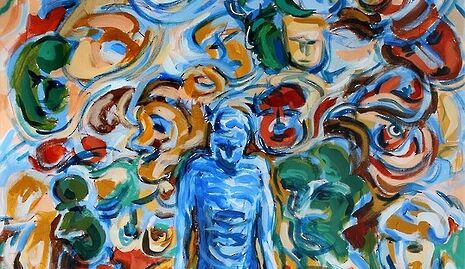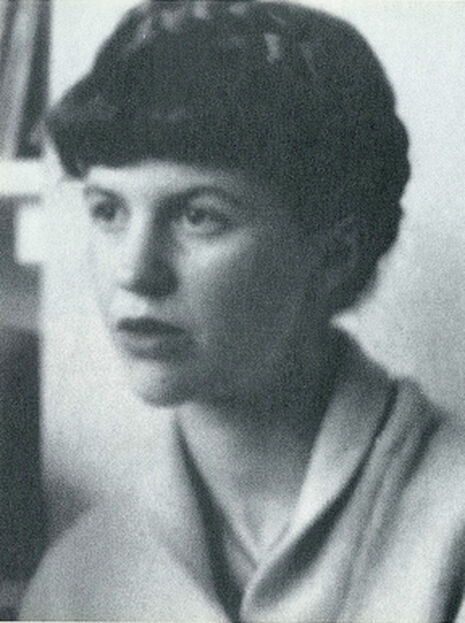Using literature to cope
In times of stress, there can be solace in a literary escape

To me, time in exam term seems both to dilate and contract: we are acutely aware of the ever-encroaching onset of that which we – well, most of us – dread, yet the blood of the hours seems to flow sluggishly through each individual day. Without lectures or labs to otherwise distract us, it’s at best easy, and at worst unavoidable, to find ourselves in narratives of overwhelming emotion, as well as those of revision. It’s ironic that despite the expectation that we, as university students, might now be ‘grown-ups’, most of us relate more to a sort of disaffected youth; think Holden Caulfield in The Catcher in the Rye.
For those who’ve suffered with mental health issues, exam term can be a testing period in a far greater sense than academic. After all, it is often under situations of intensity and duress, physical and emotional, that psychic pathologies and unhelpful coping mechanisms tend to rear their malevolent heads.
Poems are as much therapy, as they are high art
Yet, even for those who have neither been overtly diagnosed with a mental health condition, or even show no sign of one, it can be exceptionally difficult to navigate the emotional thunderstorm that accompanies the displeasing lull of hours spent in the library and repressed desires for ‘fun’ now sold-out to cramming and, ultimately, fear. Fear that we might be judged; that we might not meet the arbitrary standards of our Director of Studies or parent, or ‘insert-relevant-figure-of-authority’ here. Whatever our psychiatric ‘label’, it is consensus that stress and strain oft breed inner turmoil.
Literature may not always have been the closest ally to those with mental health issues – incongruous, since a central tenet of literature encompasses a person, or persons, with a problem, seeking a resolution. If we return to the Victorian era, we find portrayal after portrayal of stashing mad women up in attics of towers, only to hear them moaning and groaning with such abandon, and frightening the poor governesses down below. Later, we as readers have been introduced to tales of evil nurses, forced lobotomies and botched attempts at electroconvulsive therapy. Words, and societal thought overall, are often lacking in compassion for that which they do not fully understand.

These caustic depictions aside, literature can and has been helpful to those of us who struggle to one degree or another (read: all of us). Particularly in recent years, characters have been allowed – encouraged, even – to come down from the attic and to tell their own stories.
Herein, I believe, lies a treasure trove; that of vicarious experience, distilled into words far more poignant than most of us – certainly me – could ever use to detail our own travails. Many times it is through literature that I have gone from feeling like Plath’s Esther, “sitting under the same glass bell jar, stewing in my own sour air,” to a less afraid, less lonely version of myself. Content, even; especially so, because no matter if it is only in words on a page, someone has felt like I have before, and more often than not, their stories have continued. For me too, then, there is another chapter.
The great eighteenth-century writer Dr Samuel Johnson – who suffered from severe bouts of depression himself, incidentally – sums it up quite nicely: “The only end of writing is to be enable the reader better to enjoy life or better to endure it.” I couldn’t agree more, if only to add that in writing, the author too finds their own catharsis.
The classical hitch I expect will be thrown my way at this stage, is a perennial problem: but, it’s exam term – there’s no time to read! This is only 50% true. You don’t have to read an entire novel to be sated in companionship; in fact, that’s the reason short stories and, especially, poetry exist. Well, that’s what I think at least.
There is something unequivocally soothing about the repetition and rhyme; it’s “the best spoken words in the best order,” according to Coleridge. Poetry, in its concentrated language, demands concentration in a way that prose doesn’t always – but for much more focused, manageable periods of time. It’s almost like listening to a song in its incantatory quality, and arguably lyrics are a form of poetry too. Either way, poems are as much therapy, as they are high art. Perhaps then, it is apt, to leave the reader with a poem.
Say Not the Struggle Nought Availeth
by Arthur Hugh Clough (1819-61)
Say not the struggle nought availeth,
The labour and the wounds are vain,
The enemy faints not, nor faileth,
And as things have been they remain.
If hopes were dupes, fears may be liars;
It may be, in yon smoke concealed,
Your comrades chase e’en now the fliers,
And, but for you, possess the field.
For while the tired waves, vainly breaking
Seem here no painful inch to gain,
Far back through creeks and inlets making,
Comes silent, flooding in, the main.
And not by eastern windows only,
When daylight comes, comes in the light,
In front the sun climbs slow, how slowly,
But westward, look, the land is bright.
 News / Clare Hall spent over £500k opposing busway 24 December 2025
News / Clare Hall spent over £500k opposing busway 24 December 2025 Comment / The ‘class’ of Cambridge24 December 2025
Comment / The ‘class’ of Cambridge24 December 2025 News / Caius mourns its tree-mendous loss23 December 2025
News / Caius mourns its tree-mendous loss23 December 2025 Comment / Yes, I’m brown – but I have more important things to say22 December 2025
Comment / Yes, I’m brown – but I have more important things to say22 December 2025 News / Girton JCR publishes open letter expressing solidarity with Palestine25 December 2025
News / Girton JCR publishes open letter expressing solidarity with Palestine25 December 2025









